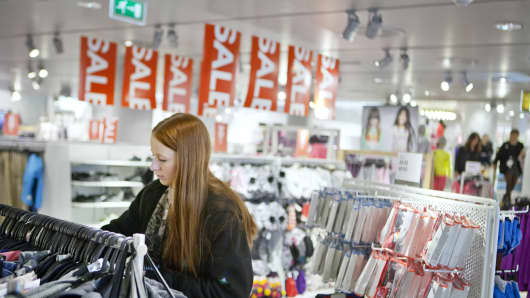European consumer confidence fell to 71, down three index points on the previous quarter. A score below 100 shows pessimism.
Europe accounted for eight out of 10 of the world's most pessimistic countries, with Italy, Croatia, Spain, France and Slovakia all posting very low confidence levels, along with Greece, Hungary and Portugal.
While more upbeat than European consumers, Latin America, North America and the Middle East all posted low levels of consumer confidence.
"The economic concerns of global consumers are increasing and these are being affected by worries that the euro zone crisis could spread from troubled countries to core countries," said Nielsen European President Christophe Cambournac in a press release on Tuesday.
"Europe remains the major concern for global demand. Consumer confidence is fragile here and any poor policy decisions within the European Union or by individual countries could see this fragility take hold more widely."
Those hoping for an uptick in consumer demand in Europe were disappointed by car sales data released on Saturday which showed that sales continued falling in France, Italy and Spain in December.
In addition, preliminary data from last Thursday showed German retail sales plummeted by their largest amount in over three years in December.
According to the Nielsen survey, the most popular way for concerned Europeans to cut costs is by spending less on new clothes, cutting out-of-home entertainment activities and switching to cheaper grocery brands.
"European consumers are indicating they are further tightening their belts and changing their spending habits. Less positivity about the future is causing a rise in their cost-cutting activities and greater caution, while saving and paying off debts are among the most popular uses for any spare money," said Cambournac in the release.
"However, there are positive signs for manufacturers of cheaper clothes and grocery brands as Europeans indicate they are likely to switch to these types of products to save money," said Cambournac.
The Nielsen Global Survey of Consumer Confidence and Spending Intentions was conducted between November 10 and November 27, and polled more than 29,000 online consumers in 58 countries across Asia-Pacific, Europe, Latin America, the Middle East, Africa and North America. The survey was established in 2005.
- By CNBC's Katy Barnato



